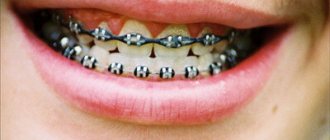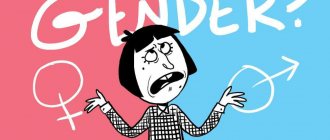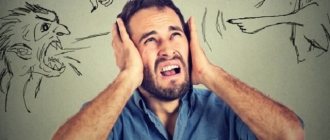- home
- Adviсe
- How to stop biting your nails
- Why do adults bite their nails?
»
»
»
The habit of biting nails is a common problem that can be extremely difficult to get rid of. A person with this feature usually hides his hands and cannot boast of a beautiful manicure.
All this creates many difficulties in everyday life: it worsens mood, makes it difficult to communicate with people, and reduces self-esteem. The theories of psychologists and neurologists described in this article will help you understand the reasons for the bad habit.
Causes of bad habit
There is a scientific name for nail biting - onychophagy . Experts say that this habit appears due to neurosis. With severe anxiety, a person subconsciously tries to replace internal tension with something. Some people start biting their nails. This helps to dissipate negative energy and accumulated aggression. As a result, a person manages to be distracted, slightly relax and even calm down.
If we consider onychophagia in detail, we can identify several narrower causes of this problem. Among them, various experts highlight the following:
Reaction to stress
According to one of the popular theories of psychology, nail biting becomes a response to the influence of a stressful situation. This action allows some people to relax, others to calm down, and others to improve their brain activity.
In France, sociologists conducted an interesting experiment. They surveyed local residents, asking them just one question: “In what situations do you start biting your nails?”
The results of the study showed that most French people develop bad habits at work . 26.5% of respondents bite their nails when they think about the tasks set by management or worry about their career, salary, or position.
Slightly fewer respondents said that they often bite their nails while shopping . According to scientists, the reason for the emergence of a bad habit in this case is the agony of choice. Among the remaining responses of respondents, one can highlight thinking about the economic situation in the country, as well as worries about children and parents .
Suppressed desires
One of the theories in neo-Freudianism states that nail biting is nothing more than an analogue of masturbation, only more acceptable in society. For this reason, the bad habit has probably become widespread.
"Inheritance" from parents
There is a widespread belief among people that the habit of biting nails is a hereditary pathology. Allegedly, it is always passed on from parents to children, and nothing can be done about it.
However, genes have nothing to do with it. In reality, every child copies the behavior of adults and adopts their habits. However, it is extremely difficult to eradicate what was ingrained in childhood. So it turns out that people whose parents bite their nails begin to do the same, maintaining this habit into adulthood.
Dissatisfaction with oneself
Some scientists put forward the theory that by biting nails, a person splashes out accumulated aggression on himself. In other words, this habit is an act of self-flagellation and self-blame. It appears in people who have some claims against themselves that cannot be voiced.
Someone may say that, although he bites his nails, he does not blame himself for anything. However, the authors of the theory clarify that in this case we are talking about the suppression of feelings. All dissatisfaction with oneself is usually hidden at the subconscious level.
Obsessive-compulsive disorders
In some cases, nail biting is a symptom of obsessive-compulsive disorder. Patients with this disease are haunted by obsessive thoughts . To cope with their anxiety, such people come up with certain rituals that are repeated day after day. Some wash their hands endlessly, others constantly count some items. There are also patients who bite their nails.
Fragility of the nail plate
In most cases, a bad habit in adults appears precisely due to psychological reasons. However, sometimes its occurrence is associated with physiology.
Many people's nail plates become thinner with age. If a nail breaks in a public place where scissors and files are not available, some people decide to replace them with their teeth. Then the person regrets that he gave himself such a manicure, but it is already too late.
How to break the habit
Numerous psychological techniques allow an adult to overcome an obsessive state. You can resort to some folk, pharmacy, and cosmetic remedies to get rid of the disease.
Psychological methods and techniques
On the advice of a specialist (psychologist), various trainings, meditation, and exercises for relaxation and stress relief are carried out.
Psychological methods help you stop “eating your nails”:
- Awareness of a problem is a psychological technique that makes it possible to find ways to solve it. The specialist conducts a conversation, during which it is established at what period of life the person first resorted to such a method of calming, and what the problem was associated with.
- Replacement therapy helps you stop biting your fingernails. The psychologist advises to occupy your hands with sewing, knitting, weaving, and drawing in stressful situations. To calm down in public places, a rosary, an expander, or a small rubber ball are suitable.
- Relaxation and relaxation. Calm, melodic music, correct, slow breathing help to cope with a stressful situation and distract yourself. The main thing is to control your hands at this moment.
- Treatment with sedatives. A course of sedatives is prescribed, which perfectly cope with nervous overexcitation and normalize sleep.
A woman will rarely allow herself to spoil her hand-made beauty by wasting money, so it is recommended to get an expensive manicure with a strong polymer coating.
What remedies help you break the habit?
Not only psychological methods help in treatment. In combination, it is recommended to use a product that has a bitter taste.
In the recent past, mustard, pepper, and other bitter remedies were applied to the nail.
Now pharmacies sell special varnishes. By covering your nail with them, you can forever discourage the desire to bite it. Apply the varnish as a regular cosmetic product to cleanly washed hands. For women it can be colored, for men it can be colorless .
There are special oils that are rubbed into the nail plate and cuticle. They have a bitter taste and unpleasant odor. They act in a similar way to varnishes.
Cosmetic nail wax contains microparticles of sand. When they come in contact with your teeth, they squeak and crunch unpleasantly. The effect of its use is no worse than that of varnish .
You can seal your fingertips with adhesive tape or tape. It is not removed until the urge to bite nails passes.
Consequences of a bad habit
It is no coincidence that onychophagia is called a bad habit. It really does lead to negative consequences, including impacts on health.
- Deformation of the nail plate is inevitable - it becomes loose, covered with cracks, grooves, and begins to delaminate. The longer a person bites his nails, the more they become deformed.
- At the same time the cuticle , which performs a protective function, is damaged.
The extension procedure can solve these problems, but will require financial costs. In addition, most men do not use such a service. - Microbes. Dirt containing various bacteria also accumulates under the nails. When a person bites them, harmful microorganisms easily enter the body. This way you can become infected with worms or an intestinal infection. Bacteria also seep through microscopic wounds in the skin around the nail, which can cause serious inflammation.
This video talks about the unpleasant consequences of onychophagia.
Consequences of nail biting habit
Understanding that the habit of chewing feet has a psychological component is unlikely to encourage an adult to seek help from a psychologist, and traditional “children’s” methods with mittens and treating fingers with bitter remedies are simply pointless. However, there is one powerful psychological tool that, to some extent, can make a person want to give up the habit - scare the person with its consequences. Moreover, these “horror stories” will be much scarier than those that are invented for children, because an adult understands their validity.
Photo from the site: rastishka.by
So, let's consider the negative consequences that the habit of biting nails can lead to:
- One of the annoying consequences of an addiction is a ruined manicure, or rather a complete lack of opportunity to do it. Judge for yourself, uneven, chewed nails with wounds and hangnails and a beautiful manicure are simply incompatible things. Moreover, it is dangerous to apply decorative coating to such nails; there is a risk of burns or an allergic reaction. Naturally, this consequence is more frightening for women than for men. However, a deformed nail bed and nail plates eaten into meat can also alert the latter.
- In addition to the unaesthetic appearance, biting nails can lead to gastrointestinal problems - from simple indigestion to poisoning. Nails and fingers collect many pathogenic microorganisms that slowly but “systematically” poison the human body.
- Another consequence that evokes disgust and fear in people who bite their nails is helminthic infestation. A person can carry parasite eggs on his hands through poorly processed vegetables, through contact with animals, working with soil, etc. Naturally, few people specifically go to wash their hands with soap in order to indulge in the “pleasure” of biting their nails, hence the risk of infection. In turn, parasites secrete toxins that further poison the body. Treatment for parasites can take a long time.
- Cutting your nails can cause a wound, and an open wound surface is a direct entry point for fungus. As a result, the problem gets worse. After all, in addition to the person himself, his nails will also be “corroded” by an associated fungal infection. All this can lead to complete loss of the nail plates.
- Constant trauma to the nails and soft tissues of the fingers can cause suppuration. Purulent lesions of the periungual area cause excruciating unbearable pain and often require surgical intervention.
- Another unpleasant consequence is the formation of an ingrown toenail. Chipped nails and a deformed nail bed lead to changes in the direction of nail growth, which can eventually grow into the skin. Correcting this defect will require a long time, and in advanced cases, again, surgical intervention.
Perhaps these consequences alone are enough to explain to an adult why chewing feet is dangerous. However, for a comprehensive effect, other techniques should be included. Let's look at them below.
Who bites their nails more often - men or women?
Statistics
Bitten nails create a problem not only for women who pay increased attention to their appearance, but also for men. Ungroomed hands create a repulsive impression and are in no way associated with a successful, self-confident person.
Onychophagia is widespread among both sexes, although everyone understands the negative consequences of the bad habit. According to statistics, approximately 65% of women bite their nails when they feel nervous at work. Among men, this figure is 35%.
Cleaners and ordinary workers are at risk. Due to their duty, such people have to use chemicals that can corrode the nail plate. In addition, they often do not have time to get a good manicure. As a result, teeth are often used instead of a nail file.
Why do adults bite their nails?
The desire to bite your nails is not a habit, but an obsessive state, which is a nervous disorder. The main reason is stress. People who are depressed try to switch gears and unknowingly cause themselves pain. For some, on the contrary, biting a nail helps them focus on the problem and find a solution.
The most common reasons include:
- stress: incessant nervous tension provokes neurosis, which in turn causes a desire to nibble pollen;
- Nervous tension: this condition is a manifestation of negative emotions. In this way, people relieve tension;
- mental illness: sometimes chewing hides more serious problems associated with a mental disorder. People with mental disorders can completely eat the nail plate. In this situation, only a psychiatrist can help;
- rumination: considered the most common cause among adults. Some people bite pens and pencils, while others chew their nails;
- anxiety: internal fear makes a person defenseless. He begins to seek protection and unconsciously bites his nails;
- childhood habits: almost all adults who have this problem suffered from it in childhood. If a child is not weaned from this habit, then he will continue to hurt himself in the hands of adults.
Regardless of the reasons that provoked the problem, it is necessary to consult a psychologist.
Expert advice
Getting rid of the bad habit of biting your nails will help you achieve success in your professional field, win the support of the right people, find like-minded people and true friends. If you manage to touch your cuticle or nail with your lips even in your sleep, you need urgent help. For women, the best remedy is to give yourself a good manicure, after which you will no longer want to bite your fingers. For men, the following method of removing their weakness is presented:
If such a desire arises, clench your fist tightly. Your will, both in a dream and in real life, must be next to you in order to make you an efficient person;
argue with your friend or acquaintance that you will not touch your fingernails;
try to distract yourself from the thought of biting your nails.
The children's tendency to put dirty hands in their mouth creates a desire in adults to gnaw with redoubled force. Therefore, the following recommendations have been developed to get rid of this addiction:
- Protect yourself from stressful situations and showdowns.
- Spend more time sleeping and in nature.
- Don't force yourself to worry about trifles and become depressed.
In men and women
Women have a more vulnerable nervous system, and they develop bad habits more often than men.
An adult man with a strong psyche is able to control his emotional state. But even the strong half of humanity has not escaped this psychological illness.
According to statistics, onychophagia affects approximately 65% of women and only 35% of men.
If an adult man bites his nails, what does it mean?
If a man experiences obsessive anxiety and excitement, his hands themselves reach into his mouth. This does not always apply to particularly impressionable people.
A strange habit may be a sign of a perfectionist - a person who is used to doing everything perfectly, always, controlling the situation, and not giving himself any concessions.
It’s not always possible to do a job “with five marks.” In some situations this is simply not possible . That’s when yesterday’s schoolchild, an excellent student, experiences severe psychological discomfort and remembers childhood, long-forgotten bad habits.
By biting his nails, an adult man plunges into the comfort zone that he found himself in as a child, performing similar actions.
Biting your nails is harmful
Deformation of cuticles and pads. People who bite their nails for too long will permanently deform their fingers. They become like sausages and this cannot be changed in any way;
Dirt and various diseases. At the tips of a person’s finger there is an accumulation of the largest number of microbes that can cause various diseases: colds, flu, intestinal disorders and more serious complications;
In stressful situations, a person may lose his temper and start biting his nails, thereby acting uncivilly in front of his employees, relatives or loved ones. After this, people may begin to treat the person with some degree of disgust.
How can you stop biting your nails?
- Recognize the problem and firmly decide that you intend to solve it
- Understand the reason why you started biting your nails and the situations in which you do it
- Try to avoid such situations
- Use a replacement or alternative: candy, seeds, food, distracting thoughts
- Ask someone close to you to comment when you start biting your nails
- Contact a psychologist who can help you deal with the problem
- Try growing your nails at least once and take a photo of your achievement. Visualizing a problem, or solving it, often helps to deal with it faster











